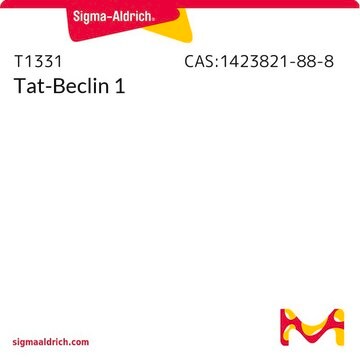General description
We are committed to bringing you greener alternative products, which adhere to one or more of The 12 Principles of Green Chemistry.This antibody is Preservative-free, produced without the harm or sacrifice of animals and exceptionally stable to allow for ambient shipping and storage if needed and thus aligns with "Waste Prevention", "Designing Safer Chemicals" and "Design for Energy Efficiency".
Click here for more information.
ZooMAb antibodies represent an entirely new generation of recombinant monoclonal antibodies.
Each ZooMAb antibody is manufactured using our proprietary recombinant expression system, purified to homogeneity, and precisely dispensed to produce robust and highly reproducible lot-to-lot consistency. Only top-performing clones are released for use by researchers. Each antibody is validated for high specificity and affinity across multiple applications, including its most commonly used application. ZooMAb antibodies are reliably available and ready to ship when you need them.
Learn more about ZooMAb here.Specificity
Clone 1E22 is a ZooMAb rabbit recombinant monoclonal antibody that specifically detects human Beclin-1. It targets an epitope within 24 amino acids from the N-terminal region.
Immunogen
KLH-conjugated linear peptide corresponding to 24 amino acids from the N-terminal region of human Beclin-1.
Application
Anti-Beclin 1, clone 1E22 ZooMAb, Cat. No. ZRB1222, is a highly specific rabbit recombinant monoclonal antibody that targets Beclin-1 and has been tested for use in Immunocytochemistry, Immunohistochemistry (Paraffin), and Western Blotting.
Immunohistochemistry (Paraffin) Analysis: A 1:100 dilution from a representative lot detected Beclin-1 in human breast cancer tissue sections.
Immunocytochemistry Analysis: A 1:1,000 dilution from a representative lot detected Beclin-1 in HeLa cells treated with Chloroquine (100 uM for 3 h).
Note: Actual optimal working dilutions must be determined by end user as specimens and experimental conditions may vary.
Target description
Beclin-1 (UniProt: Q14457; also known as Coiled-coil myosin-like BCL2-interacting protein, Protein GT197) is encoded by the BECN1 (also known as GT197) gene (Gene ID: 8678) in human. Beclin-1 is a peripheral membrane protein that plays a key role in autophagy. It is a component of the PI3K (PI3KC3/PI3K-III/class III phosphatidylinositol 3-kinase) complex the core of which is composed of the catalytic subunit PIK3C3, the regulatory subunit PIK3R4 and Beclin-1 associating with additional regulatory/auxiliary subunits to form alternative complex forms. It interacts with several cofactors, such as Atg14L, UVRAG, Rubicon, Ambra1, and survivin to regulate the activity of phosphatidylinositol 3-kinase. Its coiled-coil domain (aa 142-270) can form antiparallel homodimers and mediate dimerization with the coiled coil domains of ATG14 or UVRAG. Baclin-1 contains a BH3 motif (aa 108-127) that is shown to be bound to and inhibited by Bcl-2 or Bcl-xL. It also contains a C-terminal evolutionary conserved domain (ECD; aa 245-450) that has poly-Gln-binding domains and within this ECD it has a short amino acid sequence (aa 425-450) that is required for its membrane association. Beclin can undergo cleavage into Beclin-1-C (35 kDa; aa 134-450) and Beclin-1-C (37 kDa; aa 150-450). The Beclin-1-C 35 kDa localizes to mitochondria and can promote apoptosis by inducing the mitochondrial translocation of Bax and the release of proapoptotic factor. Beclin-1 is shown to undergo caspase-mediated cleavage that promotes crosstalk between apoptosis and autophagy. This ZooMAb recombinant monoclonal antibody, generated by our propriety technology, offers significantly enhanced specificity, affinity, reproducibility, and stability over conventional monoclonals.
Physical form
Purified recombinant rabbit monoclonal antibody IgG, lyophilized in PBS with 5% Trehalose, normal appearance a coarse or translucent resin. Contains no biocide or preservatives, such as azide, or any animal by-products. Larger pack sizes provided as multiples of 25 μL.
Reconstitution
300 μg/mL after reconstitution at 25 μL. Please refer to guidance on suggested starting dilutions and/or titers per application and sample type.
Storage and Stability
Recommend storage of lyophilized product at 2-8°C; Before reconstitution, micro-centrifuge vials briefly to spin down material to bottom of the vial; Reconstitute each vial by adding 25 μL of filtered lab grade water or PBS; Reconstituted antibodies can be stored at 2-8°C, or -20°C for long term storage. Avoid repeated freeze-thaws.
Legal Information
ZooMAb is a registered trademark of Merck KGaA, Darmstadt, Germany
Disclaimer
Unless otherwise stated in our catalog or other company documentation accompanying the product(s), our products are intended for research use only and are not to be used for any other purpose, which includes but is not limited to, unauthorized commercial uses, in vitro diagnostic uses, ex vivo or in vivo therapeutic uses or any type of consumption or application to humans or animals.










